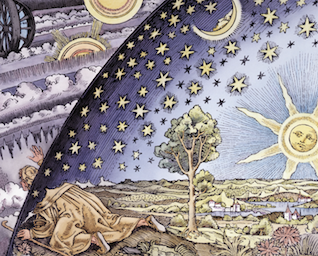Philosophy

EPISTEMOLOGY
About the limits to rational thought
• Tankens Villkor (book, in Swedish)
Nomen förlag, books-on-demand, ISBN 91-631-1618-9, 2001
Summary: Which questions can we answer? Can we, one day, fully understand the world? Are there limits for obtaining knowledge, or will there one day be a "theory of everything"?
The concept of understanding
• Att förstå – betraktelser utifrån en ny teori
Filosofisk Tidskrift 4, s. 3-15, 2010
• Svar till A. Tollands kommentarer
Filosofisk Tidskrift 1, s. 45-52, 2012
Summary: The concept of ‘understanding’ is far less discussed in philosophy than that of ‘explanation’. Defining ‘understanding’ as the cognitive ability to explain, it becomes of interest to identify what type of objects can be understood, or explained, at all. To this end, understanding is decomposed into two parts; abstraction and comparison. As a result, apart from ‘brute facts’ like mass, time and charge, also other unique properties of nature like causality and natural laws fail to be understandable. Thus the holy grail of physics, a "theory of everything", is unattainable. Interesting implications for the learning process are also found.
PHILOSOPHY OF MIND
Public Research article (on the Mind-Body problem, popularized)
Open Access Government article (on free will, popularized, see p. 26-28)
The mind-body problem
• On the Solvability of the Mind-Body Problem
Axiomathes (2020) 30:289–312, DOI 10.1007/s10516-019-09454-x
Summary: The mind-body problem is analyzed in a physicalist perspective. It is argued that consciousness is epistemically emergent. Thus reductionist understanding of consciousness is excluded; the mind-body problem does not have a reductionist solution. The ontologically emergent character of consciousness is then identified from a combinatorial analysis relating to universal limits set by quantum mechanics, implying that consciousness is fundamentally irreducible to low-level phenomena.
Free will
• Emergent Will
PhilPapers, https://philpapers.org/rec/SCHEWI-4
Summary: Implications of the ontologically emergent character of consciousness on free will are studied. In the perspective of a modified definition of free will, enabling scientific decidability, the ontological character of interactions of the cortical neural network is discussed. Identifying conscious processes as ontologically open, it is asserted that conscious states are indeterminable in principle. We argue that this leads to freedom of the will.